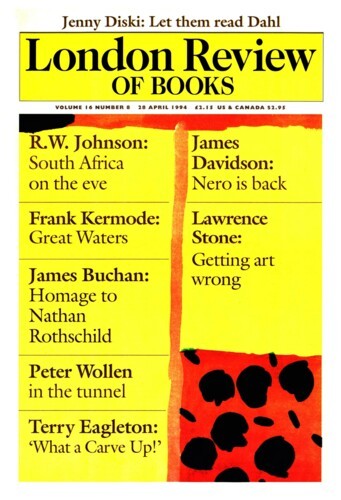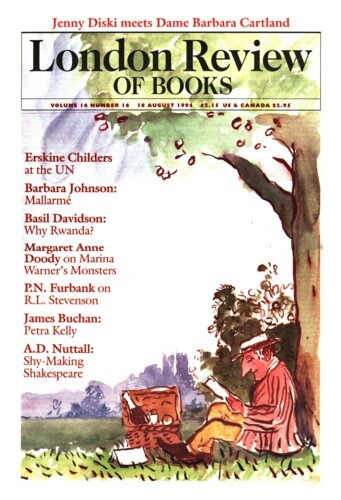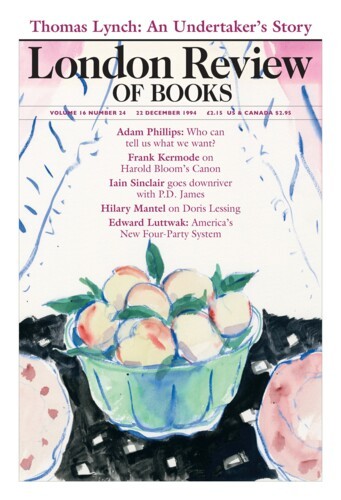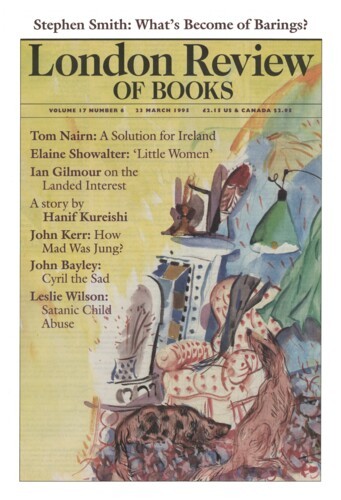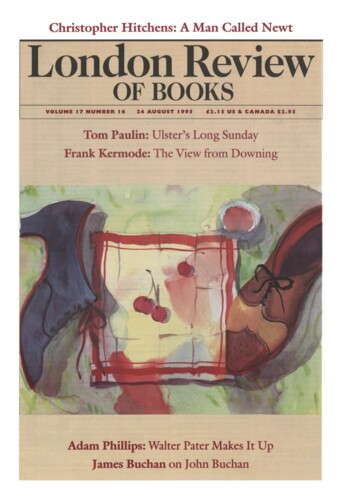The End
James Buchan, 28 April 1994
This book found me in the midst of a prolonged, if not necessarily profound, contemplation of the market for insurance and reinsurance known as Lloyd’s of London. What interests me about Lloyd’s is not the misfortunes it suffered in the late Eighties or its spectacular losses, the evident incompetence of its professionals and functionaries or its silly building, but the conduct of the passive investors in the market known as the External Names, about thirty thousand families of the English and Scots high middle class.
